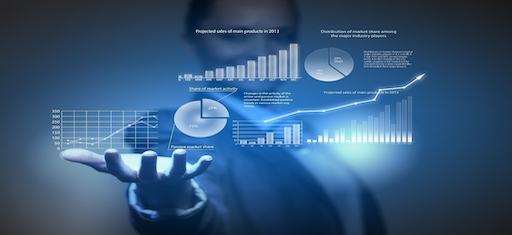What are Business Intelligence Methods and Tools?

Business Intelligence is the name given to processes and methods that help to make business decisions and determine strategies by processing large amounts of data, and make raw data useful and meaningful. With the development of technology, the data created by individuals via the internet and stored by businesses began to reach enormous sizes. Thus, business mind has become more important than ever before; it has become an indispensable set of applications that are used to identify risk factors, shape marketing and sales activities, and improve production and management processes. As GTech, we have answered some questions by sharing various information about business intelligence methods and tools in this article.
What Are Business Intelligence Tools?
Business intelligence tools; It is application software that processes large amounts of data collected from customer records, user records, images, files, e-mail, video and business activities as well as many other sources.
These application software provide querying and reporting of business data based on simple rules. It can use different applications such as quick query and analysis, reporting, real-time business intelligence, operational business intelligence, mobile business intelligence, cloud-based business intelligence and open source business intelligence.
What is in the Scope of Business Intelligence?
Business intelligence consists of many interrelated and interacting components. The prominent among these components are;
- Data mining
- Process management techniques (also called process mining)
- Multidimensional analysis processes
- Prediction or rule-based logical analysis
- Comparison of the business process with other business process examples using various performance measurement tools
- Reporting
What are the Advantages of Business Intelligence?
- Provides Productivity Increase: Business intelligence, which enables detailed reports to be created based on very large amounts of data in a very short time, provides important information to businesses and helps to use resources more effectively.
- Provides Transparency: Business intelligence, which uses very small or overlooked details in analysis, increases the visibility of business processes and enables problems to be detected more easily.
- Simplifies Business Processes: Benchmarking, forecasting, modeling and other business intelligence methods remove the complexity of business processes and make them more understandable.
- Ensures Understandability of Data: It reduces dependency by enabling technical data to be created, analyzed and interpreted even by non-technical experts.
What Are Business Intelligence Methods?
Business intelligence has many methods that businesses can use in their decision and implementation processes. The prominent among these methods are;
- Analytical: Provides meaningful insight and trends by working on raw data.
- Predictive Modeling: Predictive modeling used by business intelligence, enables seeing probabilities and trends through models created using various statistical techniques.
- Data Visualization: The data visualization method, which is realized by revealing the data visually, allows insights that cannot be expressed or made sense with numbers or letters.
Why GTech in Business Intelligence Applications?
GTech, which is one of Turkey’s top 3 companies specialized in Data Warehouse and Business Intelligence. It offers solutions to create visual, fast and interactive reports that will enable customers to analyze their data and make strategic decisions whenever they need it.
With GTech’s business intelligence solutions, businesses;
- Gains a single and reliable data source. In this way, it provides relational access to the scattered data stored in different systems, in a single environment and securely.
- By providing fast access to the information obtained from the data, it allows the time and costs spent for reporting and subsequent decision-making processes to decrease.
- Increases observability by performing customer and segmentation analyzes along with the scorecard and performance indicators.
- It enables the display of many analyzes made for different purposes or using different methods as a whole on summary screens and enables dynamic analysis.
- It ensures the integration of data from different platforms on a single platform and the use of the most accurate data in decision-making processes.
- Allows your business to make the right decisions and develop strategies.
Contact us to immediately meet with our Data Warehouse and Business Intelligence solutions.
